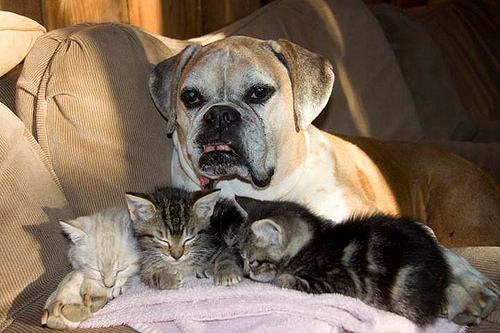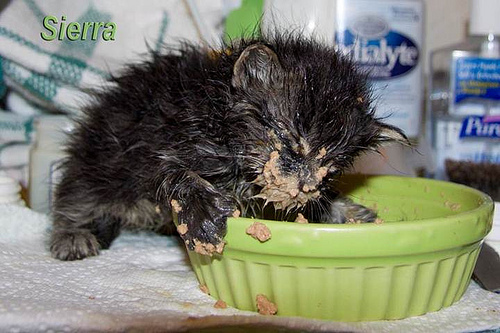Tuesday Tips: Nonfiction Proposal–Overview & Competition

Who's "over-viewing" you?
Today I continue my series on nonfiction book proposals. Over the next several Tuesday Tips I'll continue to cover some of the meat-and-potatoes of choosing topics, researching ideas, and putting together a winning nonfiction book proposal. While I write primarily about pets, the same ingredients for your nonfiction book stew are the same–it's just the seasoning and presentation that may vary.
The first week discussed the IDEA TREE followed by topic choice including where to find ideas and decide if they're viable. The third covered passionate picks and bio building–and then the holidays happened, so I took a week off. The next installment covered to query or not, what goes in a query or cover letter and how to approach an editor/agent. And last week we dissected the nonfiction proposal to find out the components. Today we dig deeper into one of those components and get up-close-and-personal with the nonfiction proposal OVERVIEW and the COMPETITION/MARKET SURVEY.

The proposal details can be cleaned up later--you just want the editor to taste--and ask for more!
A PROPOSAL "PROPOSES"
This is as good a time as any to remind y'all that you should always consider nonfiction proposals to be written in sand–or in my case, kitty litter. In almost every case, before I got an offer on one of my pet books, my agent put me in touch with the interested editor and we chatted about the book contents, format, and his/her ideas. (whispering VERY VERY SOFTLY…) Always ALWAYS "like" your potential editor's stupid clueless ideas, they are ALWAYS brilliant! However, this also is the time to try to gauge how easy (or not) they may be to work with.
Once you have the contract signed is the time to gently suggest that cats don't enjoy wearing clothes so that chapter probably will be very short. Also remember that as the author, you are the "expert" in the subject so back up any objections with professional reasons why the editor's idea won't work and will negatively affect sales.
Here's an example. One of my editors (awesome editor in every way) had never had pets. I had to explain to her that referring to a cat or dog as an "it" rather than he/she would hiss-off readers, and negatively affect sales. Remember those words–that's the magic wand that will help persuade the editor that your way is the right way. Just use the power for good, gentle writer, and never for evil.
Oh what the heck, you can do a LITTLE evil, just don't blame the fallout on me!
THE OVERVIEW
The overview is the "pitch" for the book. Everything else that follows is supporting evidence to bolster your case. Depending on the topic, your overview can be short and to the point or more detailed. As a rule of thumb, aim for about 5 to 10 pages. Think of the overview as an expanded query letter that piques the editor/agent's interest to read further in your proposal. It opens the door so you can stick your toe in the crack. The rest of the proposal either swings the gate wide open or gets your foot slammed in the door.
Here's what you need:
State the book's premise
Describe the need for the book: Use general to specific examples. This is where you can note the presence of other SUCCESSFUL books on the subject that in some way, shape or form, FAIL to complete meet the need–which your book will fulfill.
Tell how the author will deliver the book's promise: Interview experts, is an expert his/herself, etc. Think of the 25 (or more) objections any editor or agent might have to publishing your book–and make sure you answer each one!
Name the target audience: Include stats/numbers. Be specific. Beware of saying "all" of a certain demographic will buy your book–just because more than 60% of U.S. households have pet cats doesn't mean all will buy a cat book.
COMPETITION or MARKET SURVEY
Don't stint on this portion of the proposal. The editor/agent must be convinced not only that you have the credentials and can write the proposed book, but that the market will smile favorably on another title in your topic. Because if there are NONE out there, they won't be interested. Competition and especially popular titles demonstrate people already have an interest in the topic and buy books in your genre. "No books before" suggests there's a reason for that–maybe there's no market. Publishers and agents are all about the bottom line.
Take a big breath, I know this can be a scary prospect. Won't talking about the competition kill your chances of selling the book? Not if you do it right. And here's what you need to include:
What existing books fill this need?
Nope, you don't need 1,000 even if there are that many out there. Simply choose the BEST THREE and the WORST THREE and compare your proposed book to the existing titles. Be sure to highlight what's good about the books, too. A critical but fair comparison benefits you more than slamming the competition. Research at amazon.com, other online stores, libraries (the library market is ENORMOUS for reference works).
Be specific. Editors and agents always want numbers–book sales figures of existing titles, though, is proprietary and you won't get this. Even the shout-outs on the covers ("One Million Sold!") may be inflated. But you can list "sales rank" as stated on Amazon.com for a comparison.
What's positive about the books?
Where do the existing titles fall short?
How does yours stand out and offer what others lack?
What burning questions do y'all have about nonfiction proposals? Anything I've missed? Please share what's worked for YOUR nonfiction book sales, too.
#AskAmy Sweet Tweets
Folks who "follow" me on Twitter @amyshojai and @About_Puppies are the most awesome Sweet Tweets around–they love #cats and #dogs and #pets, many #amwriting. Just follow and include the #AskAmy in your tweets if'n you're interested in pithy links to articles, books, blogs, experts, fictioning and sparkle-icity!
I love hearing from you, so please share comments and questions. Do you have an ASK AMY question you'd like answered? Stay up to date on all the latest just subscribe the blog, "like" me on Facebook, listen to the weekly radio show, check out weekly FREE PUPPY CARE newsletter, and sign up for Pet Peeves newsletter with pet book give-aways!
Filed under: Writing Advice & More Tagged: Amy Shojai, cute dog pictures, cute kitten pictures, how to write, http://www.amyshojai.com, http://www.shojai.com, nonfiction proposal, publishing, writers conference, writing, writing advice




